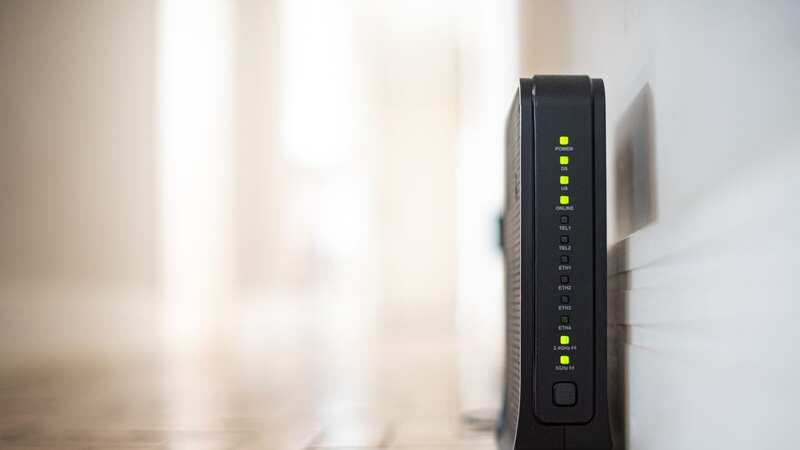Slow Wi-fi? Here are five reasons why you could be struggling

Slow Wi-fi can put us all in a bad mood, even on the best of days.
But now an expert has explained some of the most common reasons your internet connection is poor - and they all come down to the positioning of your router.
Whether it's work meetings, watching TV, or scrolling social media, Alex Tofts explained to the Daily Mail how to ensure you never have to struggle with your daily tasks again.
Knowing where your router is best positioned makes “all the difference”, Tofts explains.
The broadband comparison service Broadband Genie employee names 5 key places where routers should never be found: under the stairs, by a window, in the kitchen or attic, or next to a vase or fishbowl.
 Cleaning expert shares bathroom mould magnet that people always forget to clean
Cleaning expert shares bathroom mould magnet that people always forget to clean
For the best connection, a “clear line of sight” between your device and the router is best - but of course, this isn’t always possible.
As Wi-fi signals are transmitted using radio waves, they don’t pass easily through metal, water, walls or large furniture - so the more open an area the router is in, the better your connection will be.
“The general rules to bear in mind are looking for any obstacles nearby that could cause a problem,” Tofts said.
Here are the five places your router should never go - and here’s why:
The kitchen
Other electrical devices which use radio signals are enemies of good Wi-fi, Tofts said.
He said: “The kitchen is sometimes home to a few of these and the main culprit is your microwave.
“This uses the same 2.4 GHz signal, which will be competing against your router when heating up some food.”
Under the stairs
When the router is stuck in confined spaces, the signal is restricted. It is best to “set the signal free”, Tofts says.
 Expert warns you should never use the loo 'just in case' before leaving house
Expert warns you should never use the loo 'just in case' before leaving house
“We know routers aren't the most especially pleasing objects in your home but don't treat it like Harry Potter and lock it under the stairs.”
It might also be a good idea to elevate it, as the same applies to the floor.
Next to a window
Do not put your router in direct sunlight or right next to a window - you don’t want it to heat up, Tofts emphasises.
“Like any electrical device, it is important to keep it cool. This can be more difficult in the summer, but avoid placing it next to any windows where it will be in direct sunlight.”
“A shady spot that isn’t obstructed by large objects should be fine. Ensure there is proper ventilation in the room too.”
Next to a fish bowl
Unsurprisingly, water and Wi-fi are not a compatible pairing. Keep your router and any tanks or vases with water apart - otherwise the radio signals get scrambled.
Tofts said: “Water blocks Wi-Fi signals so don't put your router near anything with a lot of water - whether that is your indoor waterfall, aquarium, fish bowl or even vases with a lot of water inside.”
In the attic
An attic does not provide the best signal strength throughout the house, Tofts said - you want your router to be in the middle, so each corner of the house gets its fair share.
“Ideally, you want your router on the ground floor in the middle of your home, this will give it the best chance of reaching all the rooms in your home.
“Insulation material in the attic can also make it harder to get a better signal. If you use your attic space and need internet up there, you should consider using a Wi-Fi booster.”
Follow these five pieces of advice from Tofts, and you may find yourself complaining about the Wi-fi much less often.
Read more similar news:
Comments:
comments powered by Disqus

































